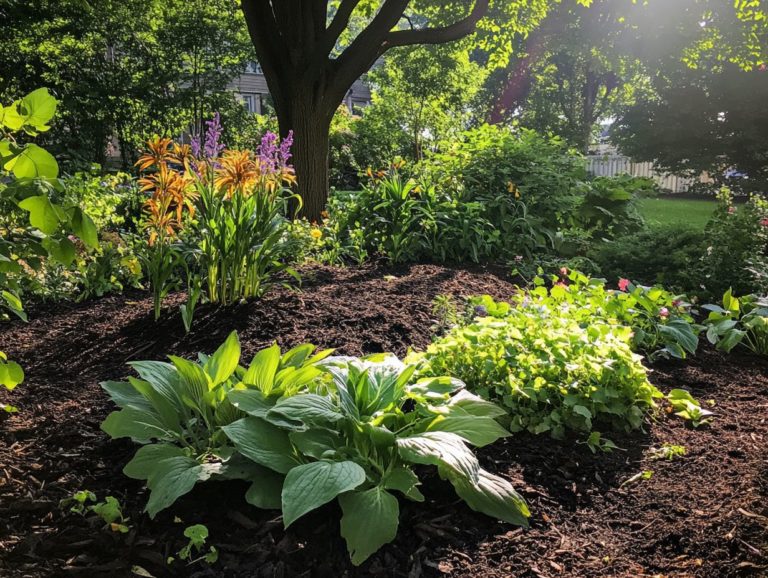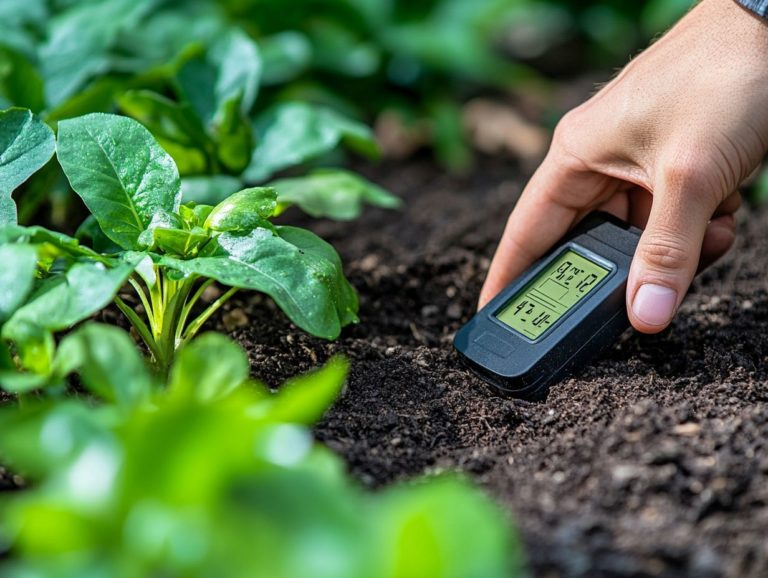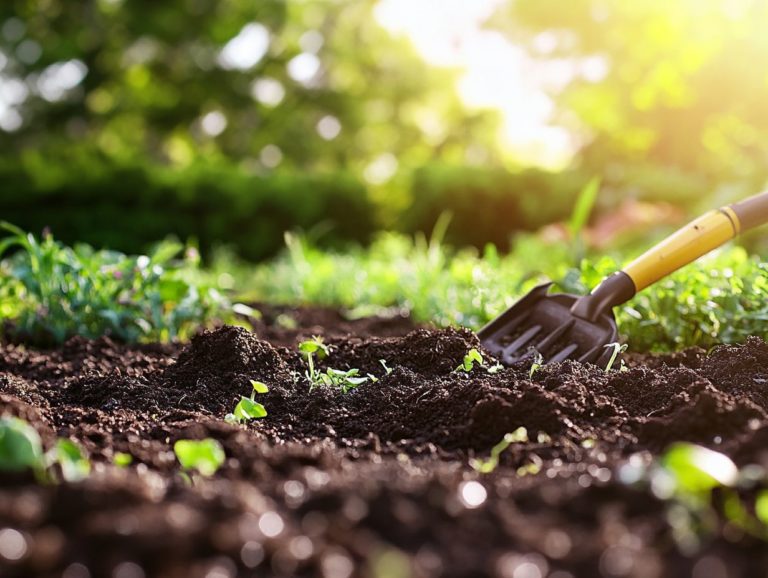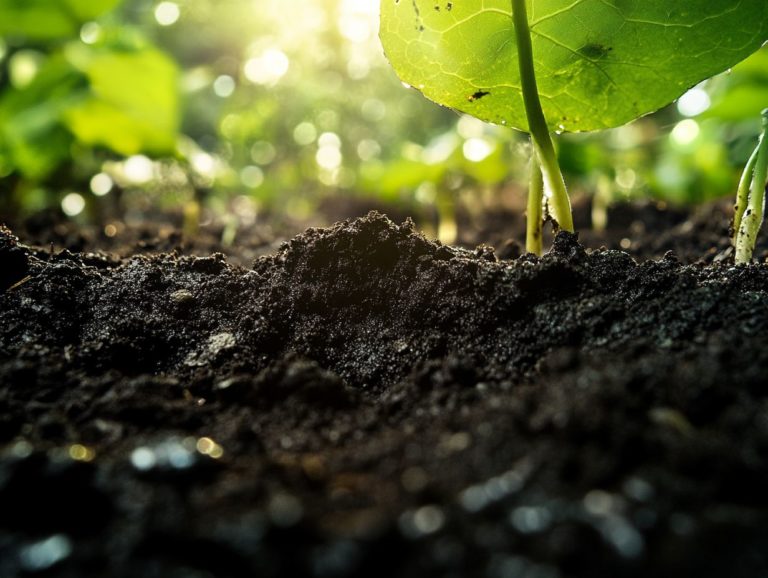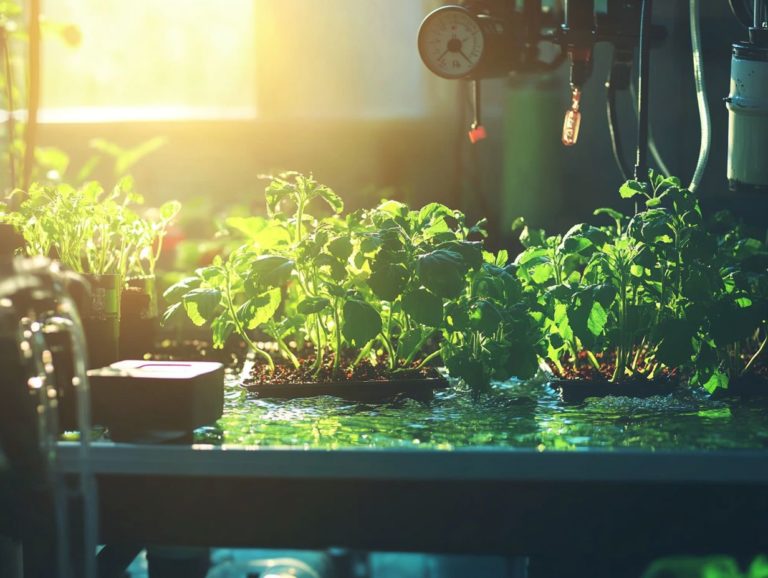The Benefits of Using Water Sensors
Water sensors are becoming indispensable tools in both residential and commercial settings. They provide solutions that significantly enhance water management and help avert costly damages.
From detecting leaks to monitoring water quality, these smart devices are essential for promoting efficiency and sustainability in your environment.
You’ll discover what water sensors are, the various types available, and the benefits they offer, including early leak detection and environmental savings. We will also guide you on choosing the right sensor for your needs and share best practices for installation and maintenance.
Explore with us as we reveal the critical role water sensors play in modern water management!
Contents
Key Takeaways:
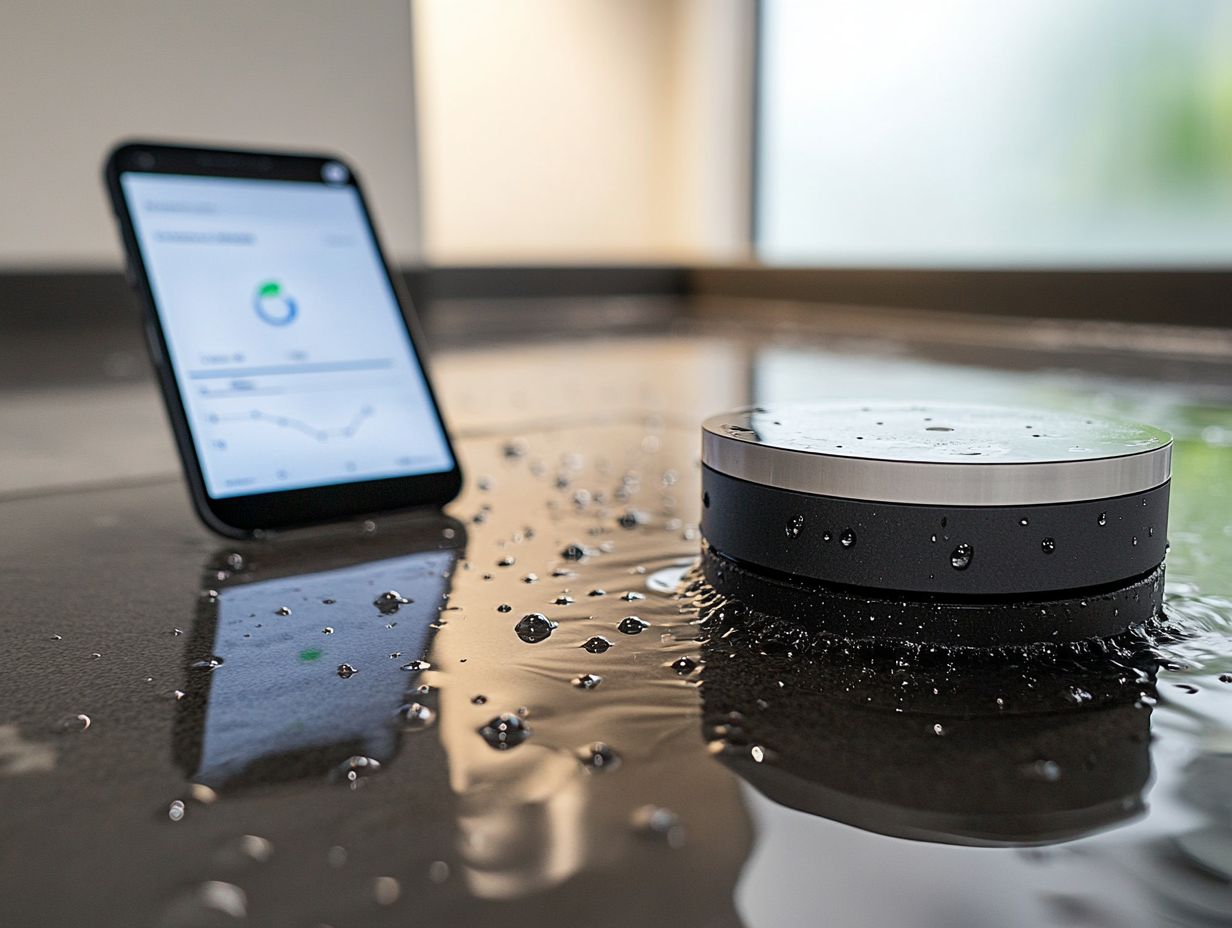
- Water sensors help improve water management and efficiency, leading to cost and environmental savings.
- Early detection of leaks and flooding can prevent costly damages and water waste.
- Choosing the right water sensor and following proper installation and maintenance practices are key to maximizing its functionality.
What are Water Sensors?
Water sensors are smart devices crafted to detect the presence of water in diverse settings. They play a vital role in leak detection and the prevention of water damage. These intelligent leak detectors provide early alerts, allowing you to take swift action against potential flooding risks and mold growth.
When integrated with automated water control systems, these sensors can efficiently manage water levels, ensuring optimal and wise water usage.
Definition and Functionality
Water sensors are essential players in today s plumbing systems, primarily dedicated to leak detection and water level monitoring to enhance the protection of your home.
These advanced devices utilize technology that detects moisture and real-time monitoring capabilities, alerting you to potential leaks before they escalate into costly repairs. By emitting signals upon contact with water, they can pinpoint unwanted moisture in critical areas like basements, kitchens, and bathrooms.
Their functionality also extends to monitoring water levels in tanks and reservoirs, allowing you to manage water usage with precision. In doing so, they help you avoid expensive plumbing problems and promote responsible consumption, ultimately supporting broader water conservation efforts.
Types of Water Sensors
You ll find a variety of water sensors on the market today, each using unique technologies and methodologies to provide effective leak detection and water level management.
Different Technologies and Applications
Various technologies empower water sensors, each meticulously crafted for specific applications in leak detection and water management. Consider electronic water controllers, which automate irrigation schedules by leveraging real-time weather data.
Then there s advanced leak detection technology that employs acoustic sensors, which instantly identify and report leaks. These innovations significantly bolster water conservation efforts!
In your home, they work to prevent water damage and lower utility costs, while in commercial settings, they adeptly monitor larger water systems, minimizing waste and enhancing overall sustainability.
By integrating these technologies into your smart home systems, you gain the ability for remote monitoring and alerts, allowing for proactive management of water usage and supporting eco-friendly practices.
Benefits of Using Water Sensors
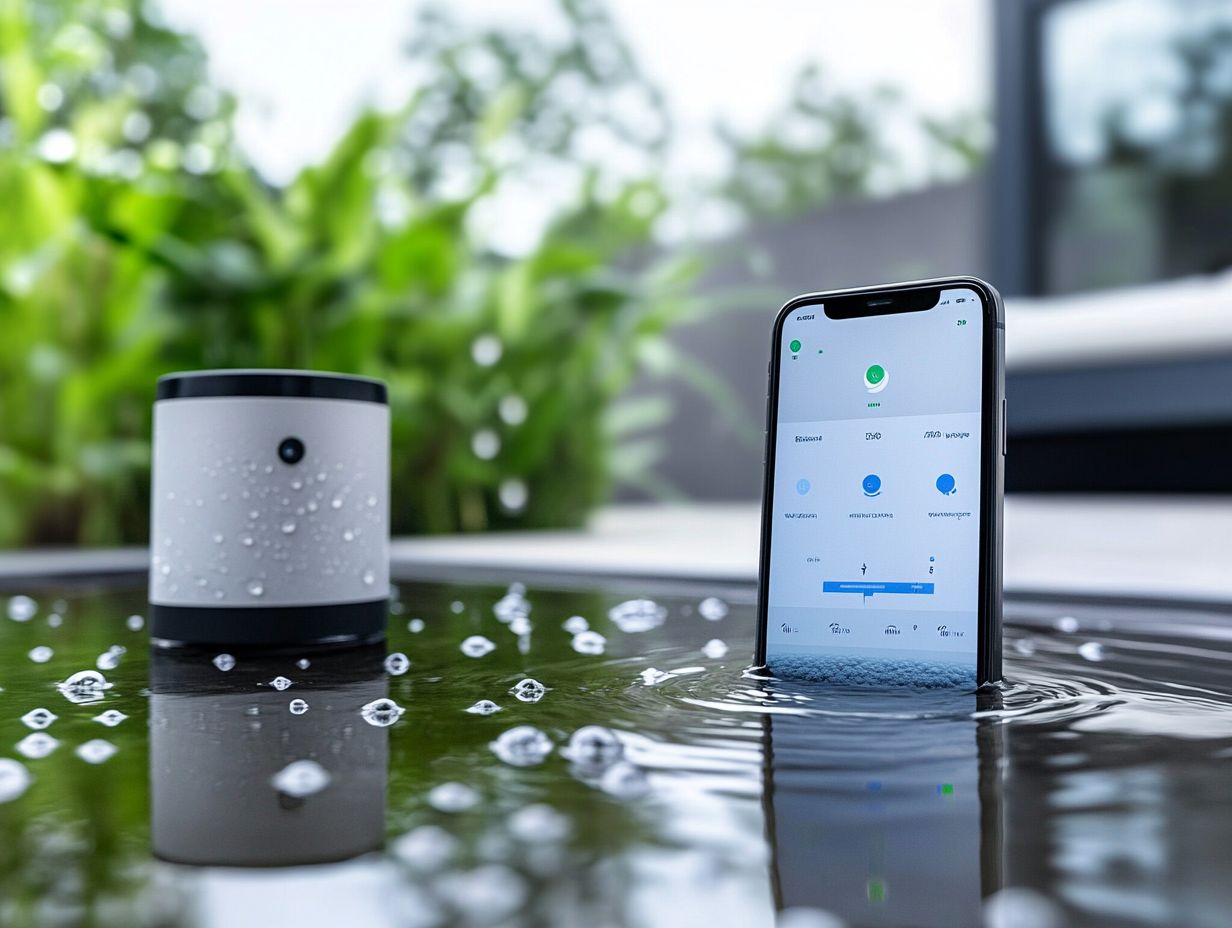
By incorporating water sensors into your home, you unlock a world of benefits. You’ll experience enhanced water management, gain early detection of leaks, and enjoy substantial environmental and cost savings.
This is especially crucial for homeowners mindful of flooding risks and the impact of elevated water expenses.
Consider installing water sensors in your home or business to take advantage of these benefits and protect your space from potential water-related issues!
Improved Water Management and Efficiency
Enhanced water management and efficiency are key benefits of using water sensors. These devices allow for smarter resource allocation and reduced utility bills.
By integrating smart water systems, you can regulate your water usage precisely. Adjust flows based on real-time needs and monitor conditions effectively.
This approach helps you avoid wastage during peak times and contributes to healthier ecosystems. It ensures effective runoff management.
Innovative water level management systems quickly alert you to leaks or irregularities. Prompt intervention minimizes resource loss.
This blend of technology supports your conservation efforts and leads to significant energy savings. It’s an essential investment for anyone pursuing sustainable living solutions.
Early Detection of Leaks and Flooding
One significant advantage of using water sensors is their remarkable ability to detect leaks and potential flooding early on. This enables you to mitigate damage effectively.
These innovative devices serve as vigilant guardians, alerting you at the first sign of water build-up. Integrate water alarms and leak alerts into your home s safety system for swift responses.
Prevent a minor issue from escalating into extensive water damage often caused by unnoticed leaks. Early intervention preserves the structural integrity of your home.
It also significantly reduces the risk of mold growth, which poses serious health hazards. With the right water sensors installed, enjoy peace of mind knowing you are proactively safeguarding your environment.
This prevents costly repairs and health risks associated with water damage.
Environmental and Cost Savings
Implementing water sensors can lead to remarkable environmental and cost savings through efficient water conservation practices and the reduction of high water expenses.
These devices monitor your water usage in real-time, alerting you to potential leaks and inefficiencies that might otherwise slip under your radar.
By providing valuable insights into your consumption patterns, water sensors empower you to adjust your habits. This significantly reduces waste and decreases the demand on local water supply systems.
When integrated into your smart home ecosystem, these sensors automate irrigation schedules based on real-time weather conditions. This not only conserves essential resources but also minimizes energy consumption.
Such practices create a positive ripple effect on the planet.
Choosing the Perfect Water Sensor Made Easy!
Selecting the ideal water sensor requires thoughtful consideration of several key factors. Assess the specific features that ensure effective leak detection. Also, explore potential discounts on your home insurance that such a device might offer.
Factors to Consider
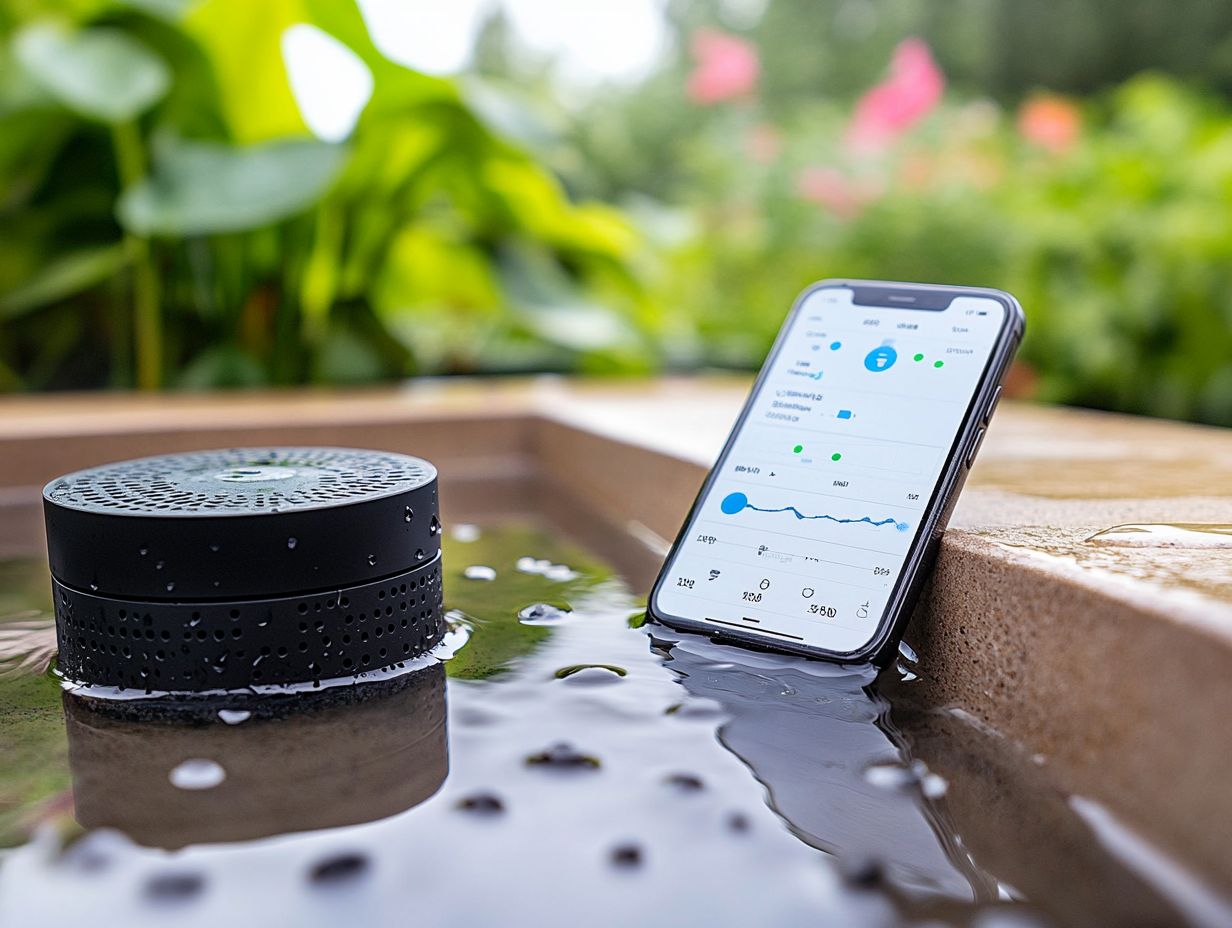
When selecting a water sensor, consider the type of leak detection technology, the accuracy of water level measurements, and compatibility with your smart devices.
Assess how easy it is to install the device. Ensure that you can set it up without professional help to save both time and money.
Integration capabilities with your existing home automation system are equally important. Seamless connectivity enhances your experience and allows for remote monitoring.
Don t overlook features like real-time alerts, data logging, and battery life. These significantly influence the reliability and efficiency of your leak detection process.
Keeping these considerations in mind will guide you to a water sensor that fits your household needs while providing invaluable peace of mind.
Installation and Maintenance of Water Sensors
Proper installation and maintenance of water sensors are crucial for their effective operation. Adhere to best practices for leak detector installation and commit to regular maintenance of your water system.
Implementing these measures enhances the reliability of your sensors and safeguards your property against potential water damage.
Act now to prevent costly repairs and enjoy the benefits of a well-protected home!
Best Practices for Proper Functioning
Adhering to best practices is essential for the optimal functioning of your water sensors. This includes regular testing, proper placement, and vigilant monitoring for leak alerts to maintain water quality.
To ensure these devices operate effectively, you must carefully consider their installation locations. Areas prone to leaks, like under sinks and plumbing issues, are ideal. Regularly inspecting and cleaning the sensors is crucial. Debris, mold growth, and mineral buildup can hinder their performance. You should also take the time to familiarize yourself with the alert systems these are the notifications you receive about leaks and the leak detection technology, which senses water presence; quick notifications let you spring into action when a leak is detected!
These proactive measures enhance monitoring efficiency and provide better monitoring with automatic water control. They also extend the longevity of your water sensors and enhance your home’s protective systems, making them invaluable in both residential and commercial settings, such as swimming pools.
Frequently Asked Questions
Why should I consider using water sensors in my home?
Water sensors are devices that detect and measure the presence of water in a specific area. They are beneficial because they can help prevent water damage, and average water damage costs can be minimized with early detection by alerting you when there is a potential leak or flood.
How do water sensors work?
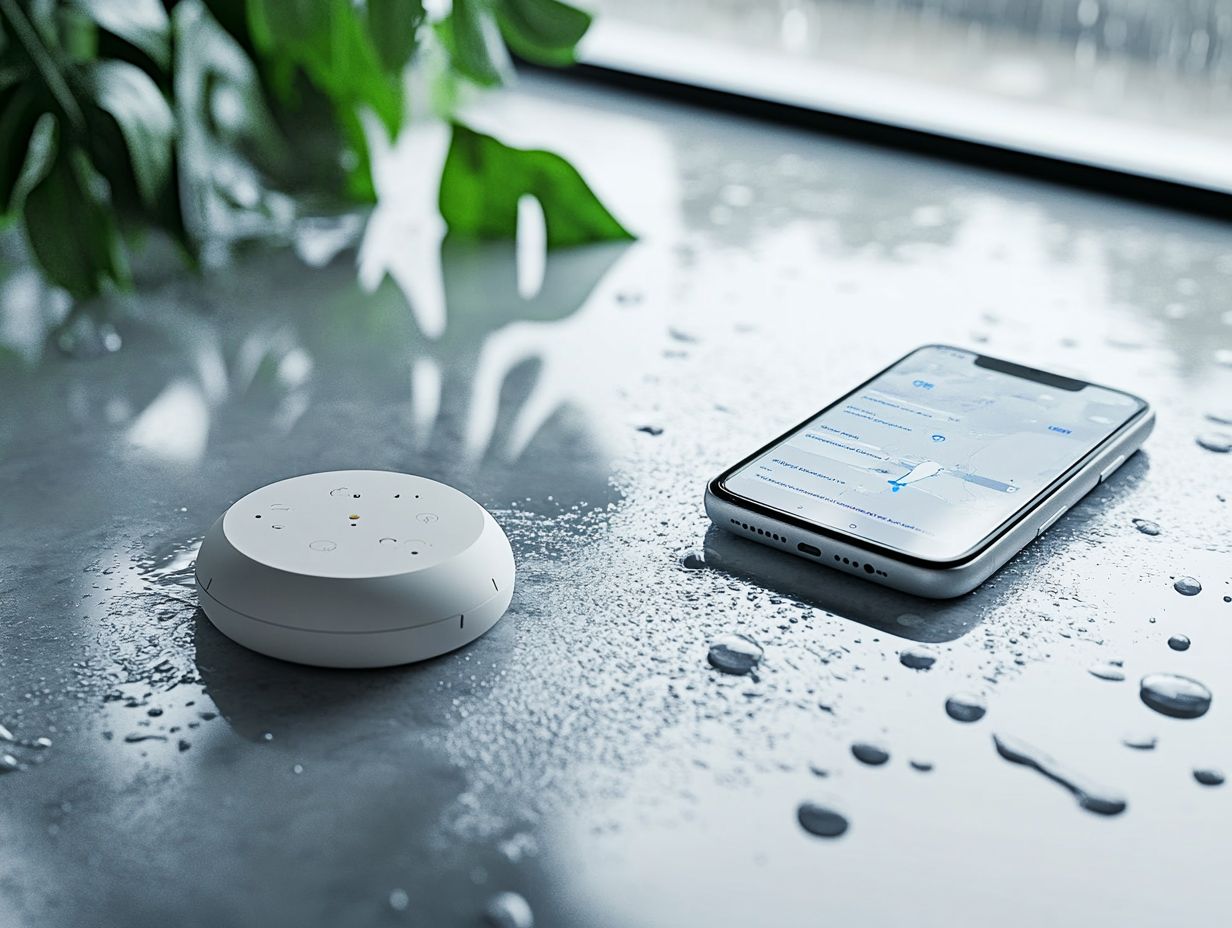
Water sensors typically use sensors or probes to detect the presence of water. When water is detected, they send a signal to an alarm or notification system, alerting the user of potential water damage. Some sensors may also be able to detect the level of water and send continuous updates.
What are the main benefits of using water sensors?
The main benefit of using water sensors is the early detection of potential water damage. This can help prevent costly repairs and damage to your home or property. It can also provide peace of mind knowing that you will be alerted in case of a leak or flood.
Are there different types of water sensors available?
Yes, there are various types of water sensors available, including point sensors, cable sensors, and probes. Point sensors are the most common and can be placed in specific areas to detect water. Cable sensors are long, flexible cables that can be placed in hard-to-reach areas. Probes can be inserted into pipes to detect water flow.
Can water sensors be used for more than just detecting leaks?
Yes, some water sensors can also detect temperature and humidity levels. This can be helpful for monitoring conditions in areas such as basements or attics that are prone to high levels of moisture. Some sensors may also have the ability to connect with other smart home devices for enhanced water level control systems, offering efficient management and added convenience.
Do I need to have a professional install water sensors?
Not necessarily. Some water sensors are easy to install and can be done by the user. However, if you are not comfortable with installation or have a complex system, it may be best to hire a professional to ensure it is set up correctly.
Don’t wait for a leak to become a disaster! Install water sensors today and protect your home.

